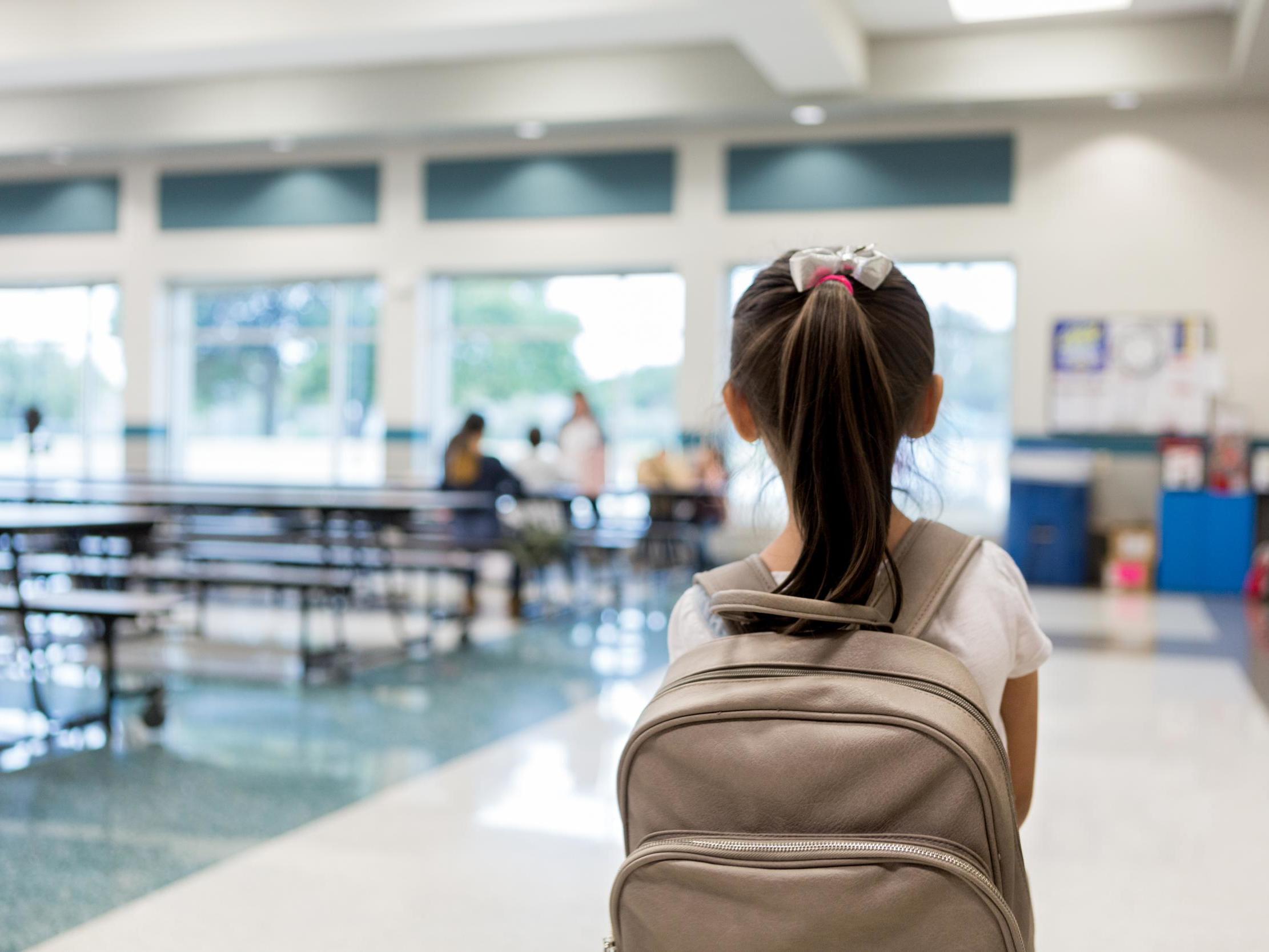Education gap between rich and poor pupils stopped narrowing before pandemic hit UK, study says
Disadvantaged children were around 1.5 years of learning behind other pupils in 2019 and this figure ‘seems almost certain to have increased’, Education Policy Institute chief says

The educational divide between rich and poor pupils in the UK had stopped narrowing even before the pandemic caused mass disruption and school closures – with some impoverished students more than two years behind their peers – researchers have found.
The effects on the coronavirus are feared to have exacerbated the attainment gap between less affluent children as pupils are constrained by lack of access to technology, individual tutorship and stable learning environments.
However an annual report from the Education Policy Institute has found disadvantaged pupils in English schools lag behind their more affluent peers by the equivalent of 18.1 months of learning by the time they finish their GCSEs.
At primary school the gap between poorer pupils and their peers stood at 9.3 months, displaying an increase in the divide for the first time since 2007.
And while last year’s findings suggested the divide was closing at a glacially slow pace – with poor and affluent students set to be equally educated in more than 500 years if circumstances were maintained – current research suggests the gap has stopped closing altogether.
In particular persistent poverty was found to impact the education of a child compared to their peers.
Those who were on free school meals for over 80 per cent of their time at school – described as persistent poverty – were found have a learning gap of 22.7 months, twice that of those on free schools meals for less than 20 per cent of their time at school.
And while the gap between those consistently in poverty and their peers has remained the same for almost a decade, researchers also found those in persistent poverty make up a growing share of the nation’s classrooms rising from 34.8 per cent to 36.7 per cent of pupils since 2017.
Report author Jo Hutchinson said: “Our research shows that over the last two years an increasing number of children are living in long term poverty, and since these children are furthest behind in their learning, that is contributing to adverse trends in the national disadvantage gap.”
“Our new data uncovers the deep educational impact of family trauma on children with a social worker. Those with a Child Protection Plan, who will have experienced abuse or neglect, face a GCSE gap of more than two years. This group has grown in size and has no direct funding or support in school, and the root causes of their vulnerability have increased since the lockdown.
“There is now abundant evidence that poverty and social vulnerability require urgent action both in and outside of school.”
It comes as the government makes “levelling up” the country a focal point of its messaging following pledges from Boris Johnson on the campaign trail to reach out into left behind areas of the country.
However the pledge first laid out in the December 2019 election has been rocked by the global pandemic – pushing the economy into recession, increasing rates of poverty and joblessness, and forcing children out of school.
But even before coronavirus disrupted daily life, the research has suggested the attainment gap was particularly acute in the North, West Midlands and parts of the South – with pupils in in Blackpool, Knowsley and Plymouth more than two full years behind their peers by the time they take their GCSEs .
In parts of London meanwhile the divide was found to be negligible – with an attainment divide in Ealing of 4.6 months, and in Westminster of 0.5 months.
David Laws, Executive Chairman of the Education Policy Institute, said: “This report highlights that in spite of the government’s aspiration to “level up” opportunity, the education gap between poor children and the rest is no longer closing, for the first time in around a decade.
“Before the covid crisis, disadvantaged children were around 1.5 years of learning behind other pupils, and this figure seems almost certain to have increased since the closure of schools.
“It is deeply concerning that our country entered the pandemic with such a lack of progress in this key area of social policy, and the government urgently needs to put in place new policy measures to help poor children to start to close the gap again.”
The study also found that the gap had already started to appear at reception age, with the divide between rich and poor standing at 4.6 months among early years students, a rate where it has remained without significant change since 2013.
Cllr Judith Blake, Chair of the Local Government Association’s Children and Young People Board, urged the chancellor Rishi Sunak to use his upcoming spending review to resource early years provisions.
She said: “Good quality early education can make an enormous difference to children’s lives, with around 40 per cent of the attainment gap between disadvantaged pupils and their peers emerging by age 5.
“Councils have long raised the issue that funding for early entitlements is not enough, impacting on the quality of provision and the availability of good support for children with special educational needs and disabilities.
“Maintained nursery schools support many of the most disadvantaged children and achieve outstanding results. However, the additional funding they receive to deliver this level of education is only guaranteed until the end of this academic year.
“The Government needs to use the forthcoming Spending Review to properly resource all early years settings to ensure that we can make a significant difference to the attainment gap.”
Subscribe to Independent Premium to bookmark this article
Want to bookmark your favourite articles and stories to read or reference later? Start your Independent Premium subscription today.

Join our commenting forum
Join thought-provoking conversations, follow other Independent readers and see their replies